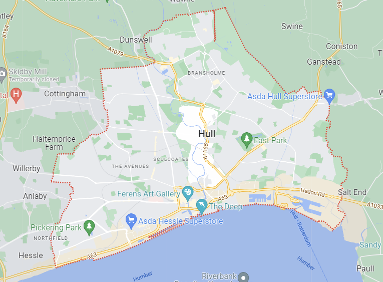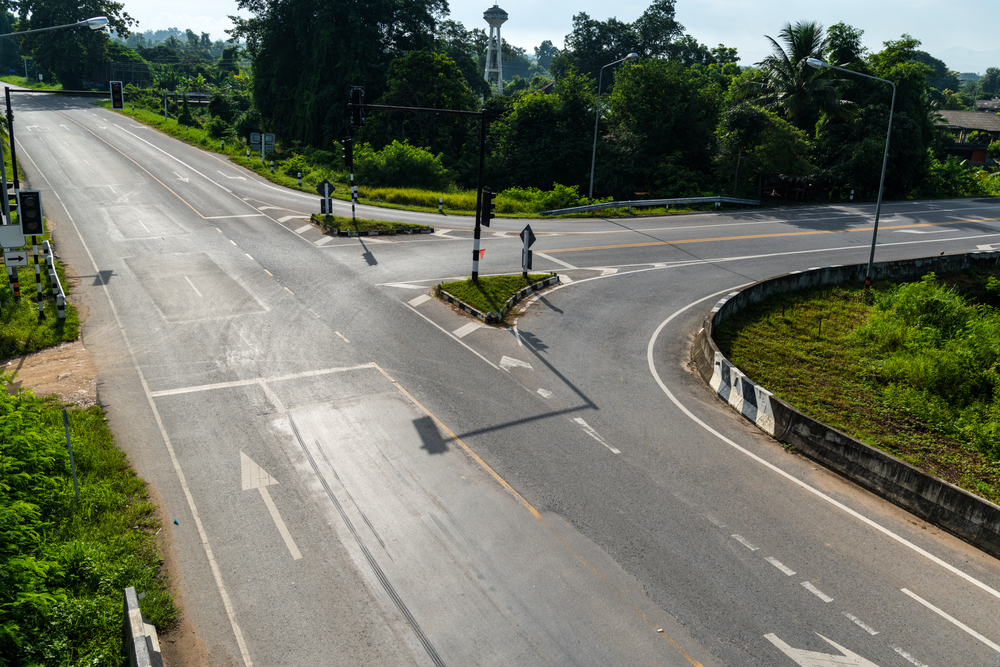Location Introduction – Kingston upon Hull, usually called Hull, is a port town in the East Riding of Yorkshire, and it lies upon the River Hull at its convergence to the Humber Estuary, which is 25 miles inland from the North Sea and 50 miles south-east of York. Kingston upon Hull is the fourth-largest city in Yorkshire and the Humber area after Leeds, Sheffield, and Bradford.
Advanced driver training is very popular in the Kingston upon Hull area, including the surrounding towns, for private individuals looking to increase their road safety or build confidence and for larger companies with fleets of drivers.

We offer a range of bespoke driver training for both business and private clients. Our courses include:
* Company drivers, which include both car and van
* Pre-court courses
* High-performance driver training
* Confidence driving courses
* Motorhome training
* Motorway confidence
* UK Familiarisation
We offer nationwide coverage across the UK and come directly to you for the on-road training, which takes place in your own vehicle. Whether for business or private clients, the training is tailored to meet your unique needs.
All of our courses are unique to the driver, but below are some of the key elements we help a driver with:
* Developing a positive mindset for driving
* Forward planning and observation
* Reviewing past driving and how that’s impacting the approach to driving
* Creating a positive learning environment in rural, urban and motorway settings
* Learning how to understand and anticipate other road users
* How to use speed safely
* Being more aware of the impacts that excessive speed can have
* How to use commentary driving to improve planning and observation on all road types
* Identifying and ironing out any at-risk habits
While a course may only last a half day, a full day, or several half days – the things you learn will last a lifetime. The report we send for each driver not only reviews their driving but also provides valuable hints and tips for the future. So, you can refer back to the report time and again. Each report is assigned its own unique verification number, so anyone reading it can trust its integrity as a genuine, original report – this is especially important if you have been asked to do the training from an external party such as an insurer or employer.
There are several benefits to taking driver training with Drivers Domain UK:
* Handpicked advanced tutors, all registered with the Driver & Vehicle Standards Agency
* National coverage
* full and half-day options
* Personal account manager
* Detailed reporting for each driver from the tutor who is providing the training
* Bespoke training based on each driver’s specific needs
* We come to you for the training
* A training is on-road
The main roads in and out of Hull are the M62 and the A63 dual-carriageway; this is one of the main east-west routes in Northern England. It links to the cities of Manchester, Leeds, and Liverpool, along with the rest of the country, by the UK motorways network. Kingston upon Hull is close to the Humber Bridge and provides road links to areas south of the river Humber. This was built between 1972 and 1981 and, in its time, was the longest single-span suspension bridge in the world. We have helped many drivers in and around Kingston upon Hull, including Bransholme, Greatfield, Southcoates, Stoneferry, Sutton-on-Hull, West Carr, and Wilmington. You can use your own vehicle, car, van, campervan, or motorhome. Our highly experienced and qualified tutors will come to you, and all have excellent local knowledge of your area.

Our training courses do vary in structure, although they are all based and cost on durations:
3.5hr – A half-day session for one driver
7hr session – A full day can be split for two drivers on the same day in the same location
2 x 3.5hr – 2 half-day sessions
3 x 3.5hr – 3 half-day sessions
Courses for longer durations:
Our fully tailored 3, 4 and 5 x 3.5hr – half-day sessions are more suited for those who have specific issues with their driving, such as driving anxiety, significant driving issues on particular roads, or who have not driven for a very long time. These longer courses are booked mainly by private individuals, although they are also open to our business clients.
Longer duration courses are great for those facing certain (often particular) driving problems, as it can take time to build up your skill and confidence. The time between each session will also be valuable as it allows you to reflect, absorb and practise what has been covered.
Get in touch
We have several training options and packages. Please call us for more information. The team member you talk with will, more often than not, manage your enquiry right through to training if that’s what you decide on doing. This includes private individuals and also business customers.
Road Safety Risks and Information – Kingston-Upon-Hull
Kingston-Upon-Hull is a bustling port city located in East Yorkshire on the banks of the river Humber. It is primarily served by the A63, which runs from Leeds and into the centre of Hull. This route is laden with accident sites, and they start from the intersection of the A15, Boothferry Road, where many collision sites are centred on the slip roads connecting to it. Poor lane exiting and positioning may be to blame, so it is essential that you are not only aware of your own directions but are also able to spot drivers who may be struggling with theirs. The A63 continues along the Clive Sullivan Way, which is a fast dual-carriageway with numerous crash sites, many being severe and life-changing from both directions. The Priory Way junction links from the A63 to Hessle Road, and this busy intersection shows many collision sites. This may be because of the slower speed changes, especially at the Livingstone Road junction. The next area of concern is the prominent intersection of the A1116, St Andrew Quay and Brighton Street roundabout. This is an extremely busy roundabout at all times, but during rush hours, it is especially hazardous, with extra traffic from the St Andrews Quay retail centre. There have been several fatal accidents in this area over the past few years, so drivers must be extra aware of their overall observations and road positioning when using such busy junctions. As the A63 merges into Hessle Road, there are many collision sites along the slip roads in both directions, especially on the Rawlings Way and Daltry Street Roundabout, which brings much commuter traffic onto the A63 and into Hull City Centre. The A63 continues along the Princes Quay Bridge and toward Heddon over Myton Bridge and the River Hull. The collision rates are still very high, especially near the traffic light systems of Dagger Lane and Queen Street.
From the A63, the Ferensway travels up the west side of Hull city centre to meet the A165; this is a huge and challenging four-way junction with numerous accidents recorded, sadly, with a few being fatalities. This is a bustling junction, and the accidents continue along the A165 Freetown Way at almost every traffic light junction, with the worst affected area being the North Bridge traffic lights at George Street. Collisions here can lead to road closures on both sides of the river and cause further congestion-related accidents. The A165 continues along Holderness Road to meet yet another challenging 4-way traffic light system with a high volume of accidents noted. As these routes are all the main trunk roads through Hull, with one shut due to an accident, it puts a lot of pressure on the rest, so frustration can run high, especially during rush hours. Staying calm but alert and being aware of other drivers’ intentions while driving in inner city areas is a good recipe for staying safe!
Please contact us if you have any specific roads you travel on in Hull and are keen to discover what parts are at higher risk of collisions. We offer a free-of-charge service to anyone interested.
